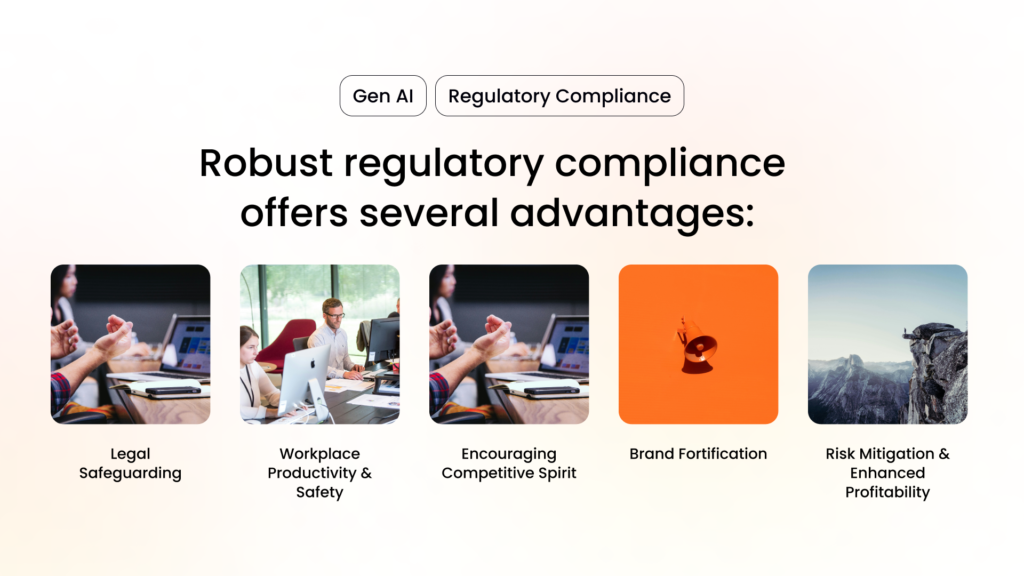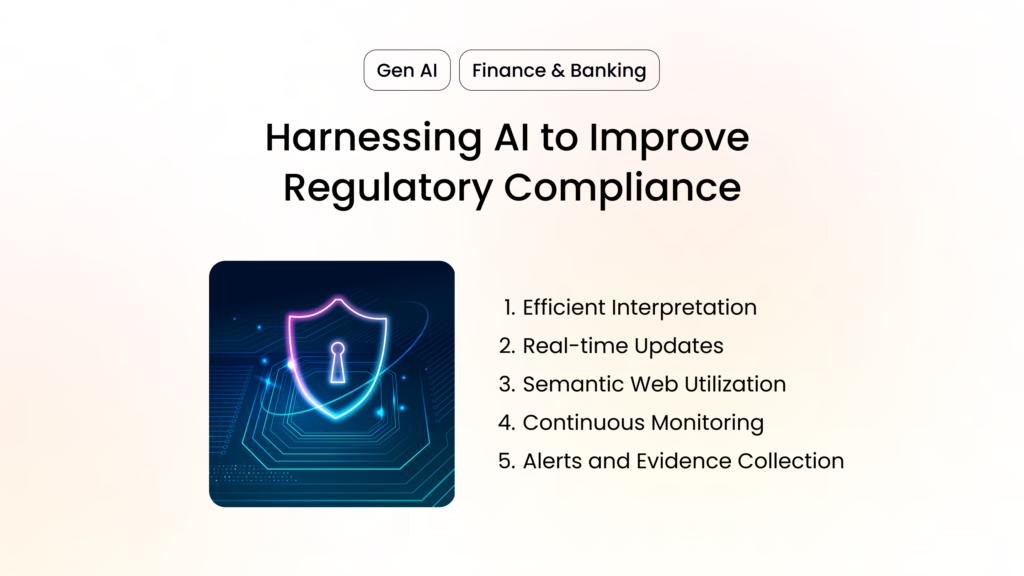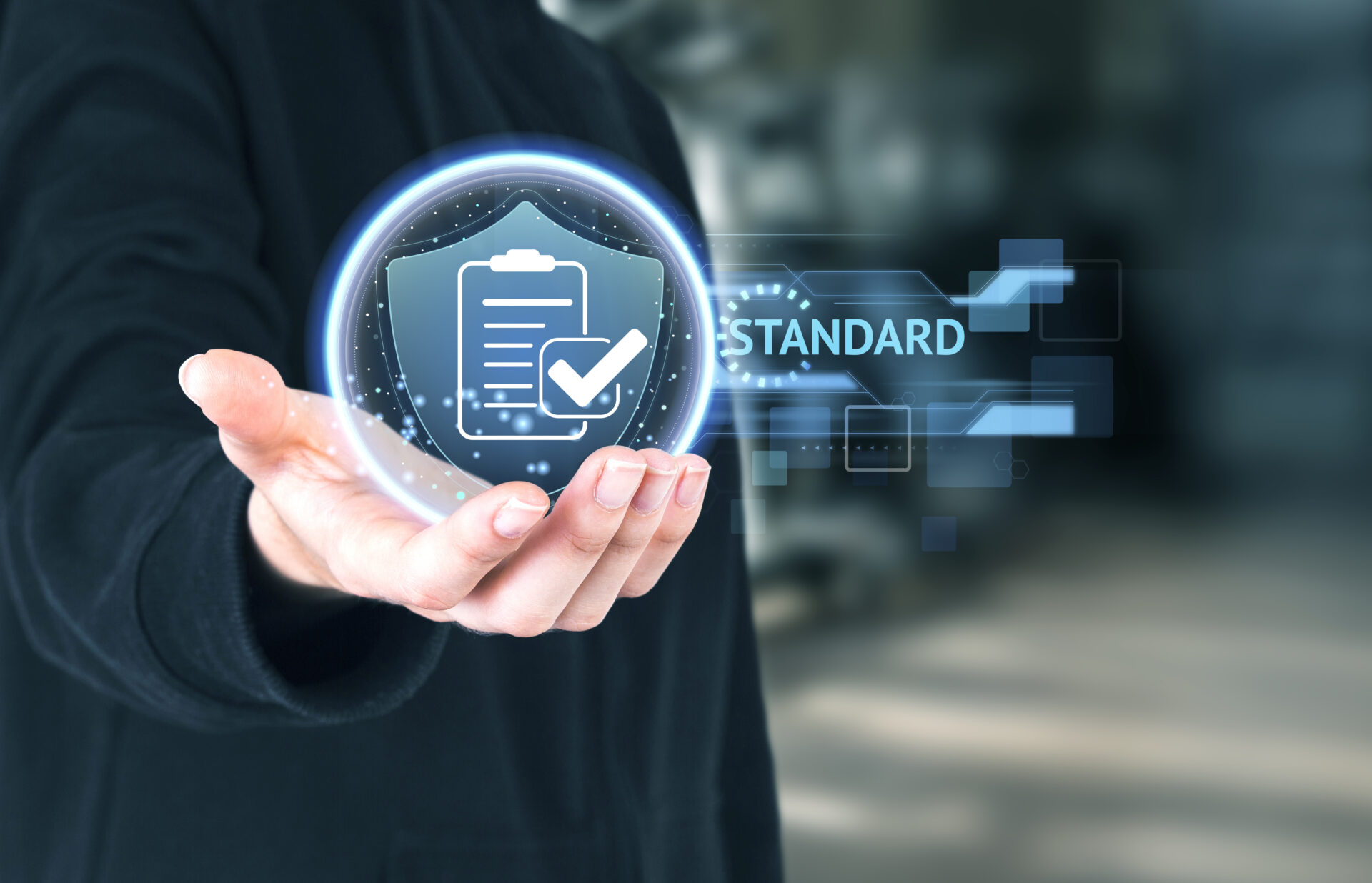Navigating regulatory compliance is difficult for many organizations, but these regulations are essential for mitigating vulnerabilities. They identify potential data risks and recommend measures to bolster data security, thereby preventing costly breaches and ensuring data integrity. Besides safeguarding data, AI in regulatory compliance also promotes business resilience, ethical practices, and stakeholder trust.
Industries such as healthcare, governed by HIPAA, have specific regulations that organizations must adhere to, making it crucial to identify relevant rules. Non-compliance can lead to significant financial penalties.
With an anticipated 300 million new regulations in the next decade, maintaining compliance and transparency is essential. Despite the financial risks, many organizations still use outdated methods like spreadsheets for compliance, which are error-prone.
Artificial Intelligence (AI) provides an effective solution by enhancing efficiency, accuracy, and adaptability in compliance processes. AI can quickly analyze vast amounts of regulatory data, assisting organizations in understanding and adhering to regulations, thus avoiding legal issues.
Understanding Regulatory Compliance
Regulatory compliance requires following laws, guidelines, and standards established by governing bodies relevant to an organization’s industry and location.
Sectors like finance, IT, and healthcare face particularly complex regulations due to their economic impact, public health importance, and susceptibility to cyber threats. As businesses expand, they must navigate a complex network of overlapping regulations, which demands strong compliance frameworks.
Regulatory compliance is vital for maintaining business credibility, safeguarding public and stakeholder interests, and ensuring ethical practices. Transparent compliance strategies build trust, enhance brand reputation, and generate goodwill.
Additionally, regulations protect consumers from unethical practices, such as those that led to the 2008 financial crisis, and help business leaders avoid legal troubles.
Robust regulatory compliance offers several advantages:

- Legal Safeguarding: Compliance ensures organizations meet legal standards, avoiding legal issues and making the investment in compliance worthwhile.
- Workplace Productivity & Safety: Anti-discrimination, anti-harassment guidelines, and strict safety protocols create a productive and safe work environment, boosting organizational resilience.
- Encouraging Competitive Spirit: Regulations prevent monopolies, fostering competition and innovation.
- Brand Fortification: Commitment to compliance enhances public image and can be a key element of branding, showcasing adherence to ethical standards.
- Risk Mitigation & Enhanced Profitability: Consistent compliance builds customer trust and attracts reliable business partners, leading to sustained alliances and increased profitability.
Why implementing AI in regulatory compliance is necessary?
In the fast-paced business world, regulatory compliance has become increasingly complex. Regulatory technology, or Regtech, leverages digital technology to simplify and automate the compliance process. With regulations continually evolving, AI’s role in regulatory compliance is becoming crucial.
Challenges for Regulators and Regulated Entities
Regulatory Bodies:
- Strive to balance industry stability through laws and guidelines.
- Face resource constraints in monitoring an expanding list of businesses for compliance.
Entities:
- Must adapt to changing regulations to align their practices.
- Risk financial penalties, reputational damage, and legal consequences for non-compliance.
- Struggle to understand and document compliance with numerous regulations.
- Prepare for potential audits, adding complexity.
Harnessing AI for Improved Regulatory Compliance

Efficient Interpretation
AI tools can quickly parse lengthy regulatory documents, highlighting crucial information for compliance officers. This streamlines comprehension and implementation without extensive manual effort.
Real-time Updates
AI systems can scan regulatory websites for changes using deep learning and natural language processing (NLP). Businesses receive prompt notifications of rule changes, ensuring timely compliance.
Semantic Web Utilization
AI tools use the semantic web to structure and make regulatory data machine-readable. This ensures efficient communication and understanding of regulatory changes.
Continuous Monitoring
Advanced analytics and machine learning allow regulators to continuously oversee compliance. Real-time monitoring identifies discrepancies early, enabling prompt corrective actions. Businesses can proactively stay compliant using this information.
Alerts and Evidence Collection
AI systems can instantly alert regulators of breaches and collect necessary evidence for legal actions. This enhances deterrence and fosters a more compliant business environment.
Benefits of AI in Regulatory Compliance
There are three main benefits to implementing AI in enterprise businesses for regulatory compliance:
- Increased Efficiency: AI automates repetitive, low-impact tasks, freeing up human resources to focus on strategic initiatives. This not only reduces human error but also increases overall productivity.
- Enhanced Data Management: AI’s capability to collect, transform, and analyze large datasets is invaluable. It can uncover patterns and insights that are impossible for human analysts to identify, aiding decision-makers in staying compliant and competitive.
- Improved Personalization and Customer Trust: AI allows for behaviorally targeted marketing, which is twice as effective as non-targeted marketing. Over time, this leads to reduced marketing spend and increased ROI, while simultaneously building trust and attracting reliable business partners.
Use Cases of AI for Regulatory Compliance
As AI becomes integral to Regulatory Technology (RegTech), addressing algorithmic biases, data quality, and cybersecurity is crucial. Here are key use cases of AI in regulatory compliance:
- Regulatory Change Management: AI helps manage dynamic global regulations, notifying companies of changes and required adjustments instantly. This aids in maintaining compliance and harmonizing regulations by identifying inconsistencies.
- Regulatory Data Validation: AI validates transactional data, ensuring accuracy and compliance with internal systems and regulatory standards, enhancing data integrity.
- Trade Surveillance: AI reduces false alarms in trade and communication surveillance by distinguishing genuine threats, and improving the effectiveness of monitoring systems.
- AI Testing: AI models must be rigorously tested to ensure accuracy and reliability. This involves understanding training data and performing regression tests to maintain efficacy after modifications.
- Data Quality Management: AI ensures data completeness, accuracy, and representation, adapting to regulatory changes and dynamically refining its models based on real-time data.
- Regulatory Analysis by Supervisory Authorities: AI aids supervisory bodies by analyzing vast data sets, flagging potential compliance issues, and identifying emerging risks.
- Streamlining KYC and Client Onboarding: AI improves KYC processes through digital IDs, form auto-fill, facial verification, and rapid analysis of large data sets, efficiently detecting fraudulent activities.
- Data Classification and Audit Trails: AI organizes data and maintains detailed audit trails to ensure compliance. It automates the sorting and labeling of information and oversees access and edits according to compliance standards.
- Enhancing Cybersecurity and Regulatory Compliance: AI simulates cyber threats, such as phishing attacks, to evaluate and improve organizational preparedness. It also provides tailored cybersecurity training based on employee vulnerability scores.
- Fraud Detection: AI enhances the detection and prevention of fraudulent activities, especially in financial institutions, by analyzing complex data patterns that human capabilities might miss.
- Anti-Money Laundering (AML): AI processes vast data to identify unusual financial patterns, enhancing AML efforts. It acts as a supplementary force to human expertise, improving compliance measures and detecting potential threats.
Conclusion
As AI technology continues to evolve, its role in regulatory compliance will only become more crucial. The ability to efficiently interpret vast amounts of regulatory data, monitor changes in real time, and provide continuous oversight makes AI an indispensable tool for organizations aiming to stay compliant.
By integrating AI into their compliance strategies, organizations can not only avoid legal pitfalls and financial penalties but also build a strong foundation of trust with stakeholders. This, in turn, enhances brand value, fosters customer loyalty, and drives long-term profitability.
At Innovators Hub Asia, our AiLab service is your gateway to revolutionizing business operations and decision-making through advanced AI technologies. As a leading AI consulting firm, AiLabs provides a comprehensive suite of services that include crafting AI strategies, prototyping concepts, and implementing full-scale AI systems tailored to your organization’s unique needs.
Whether you’re onboarding AI for the first time or looking to validate AI capabilities before making a large-scale investment, AiLabs offers expert guidance and custom solutions. With AiLabs, you can confidently navigate the complexities of AI and unlock new avenues of growth and efficiency.







